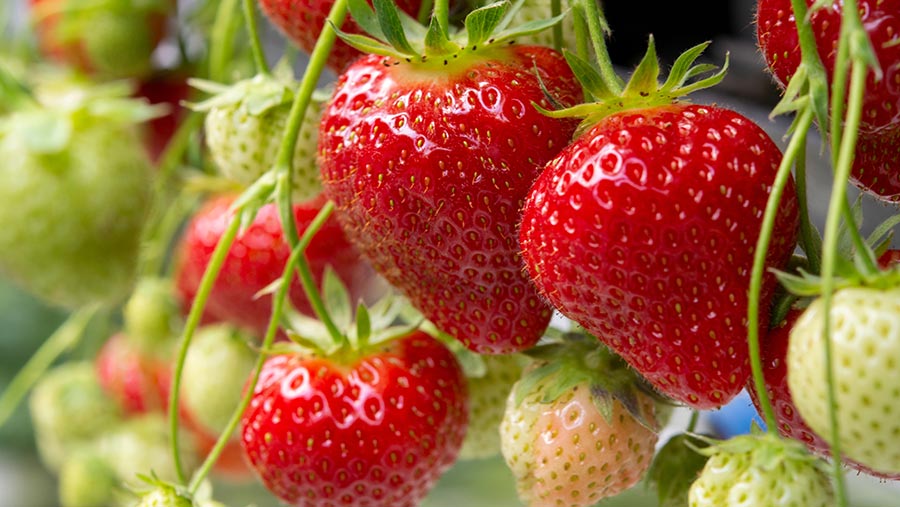Opinion: Dyson’s cyber strawberries provide a glimpse of farming’s future
 © Barmalini/AdobeStock
© Barmalini/AdobeStock What a strange time in which we live.
A war between Russia and Ukraine, a rule-breaking prime minister who won’t leave office, a global pandemic and, worst of all, weather patterns that are noticeably changing.
I sometimes wonder if I am having a weird dream from eating too much cheese and at some point I’ll wake up… it’s 2016 again and Victoria Wood and Terry Wogan are still alive.
Faced with so many things that we cannot influence, most of us have maintained our sanity by focusing on simpler things.
See also: Find all our Opinion pieces in one place
Lockdown was a good example of this. Could any of us, in 2016, have believed that in just a few years’ time almost the entire population would be confined to their homes and only allowed outside once a week to bang their pots and pans? Were there riots?
Nah, just a surge in Netflix subscriptions, alcohol sales and people growing their own veg.
Like a middle-class lemming, I too created a veg patch during lockdown.
I steered clear of exotica like aubergines and pineapples, and stuck to what I knew would work – salad, strawberries, courgettes (one plant will feed a hungry family of 10), and chard.
The resulting drop in my food spending wasn’t as dramatic as I had hoped, but there was at least one very positive change between the planting and the harvesting of my 40 strawberry plants – my boyfriend moved here from his beloved Herefordshire and took a job with a little-known vacuum cleaner manufacturer who is trying to break into agriculture.
Interesting experiment
Like me, the vacuum cleaner manufacturer is also having a go at growing strawberries, in a 6ha greenhouse heated by one of his AD plants. This led us to an interesting experiment.
Which taste better, my garden-grown, in-season, heritage strawberries, nurtured by sun and rain, or the vacuum cleaner manufacturer’s techno-strawberries, grown using renewable energy, recycled water, robots, laser beams and computer algorithms?
Well, the next bit causes me pain to admit. The Dyson strawberries tasted better. Much better. The word “delicious” is inadequate.
I didn’t think food existed with that depth of flavour and sweetness.
I imagined such delicacies were reserved by God exclusively for the angels to feed to Mother Teresa, Dame Vera Lynn and Captain Sir Tom Moore as their afternoon treat in the kingdom of heaven.
These strawberries made my tiny, homegrown fruits look and taste like elderberries in comparison.
Funny taste
So why have the Dyson cyber-strawberries left a funny taste in my mouth?
It’s because they put paid to the commonly held belief that food production is a task that is best undertaken in harmony with nature.
They prove that nutrition and flavour are an outcome of intelligently applied science.
They debunk the myth that food has a soul, that it is magically imbued with the beauty of the landscape in which it grows, and is better when produced under the loving care of a fourth-generation tractor driver who sprayed it with ag-chems while listening to Radio 1, just like his father and grandfather before him.
In times of difficulty and change, it is inevitable to crave the security of the past. But the only way to pass through difficulty is forwards.
I suspect that Dyson’s strawberry production is a portent of how food production will look in the future.

